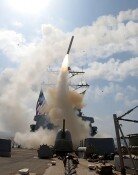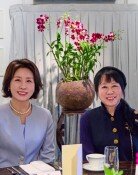[Editorial Koreas Diplomacy Facing June Crossroads
[Editorial Koreas Diplomacy Facing June Crossroads
Posted June. 02, 2005 06:28,
June is a critical season for Koreas diplomacy. Whether Korea will start anew, realigning its lost and twisted principles and systems, or whether it will give up in confusion like it is now will be decided in June. As the U.S. is about to lose its temper over the North Korean nuclear issues, there will be a series of summit meetings this month: Korea-U.S. summit talks on June 11, Korea-Japan summit talks on June 20, the fifth anniversary of the June 15 Joint Declaration in Pyongyang between the two events, and North-South ministerial-level talks in Seoul at the end of the month. The overall shift to be decided in June as a result of a variety of affairs at home and abroad will be a big turning point for the future of Korea.
Amidst this critical point, it is worrisome whether the government will be able to set its diplomatic path straight. A case in point is the Korea-U.S. summit. It is often the case that summit talks are held after a working-level consensus is reached beforehand, but it is an exception this time. In the same aspect, Ban Ki-moon, the minister of Foreign Affairs and Trade, said yesterday, We are planning to frankly talk about the North Korean nuclear issues with the U.S. The word, frankly is used as a diplomatic expression when differences of positions cannot be narrowed.
Northeast Asia Peace Balancer theory is also controversial. The Ministry of Foreign Affairs and Trade said, Even if Korea plays the role of a balancer within the region, it is only feasibly based on the Korea-U.S. alliance, which mollifies the U.S., but the U.S. keeps being suspicious. President Roh Moo-hyun must not mention the balancer theory at this summit. Rather he should focus on recovering the mutual alliance after reaching an agreement on solving the North Korean nuclear issue.
There has to be a way to recover Korea-Japan relations. It was revealed that a hard-line response based on populism is not the answer. Efforts should be made in advance so that the Japanese Prime Minister expresses apologies for the distortions of history in his countrys history textbooks and for the controversial remarks by the Japanese vice foreign minister. Japans help is needed in resolving the North Korean nuclear issue.
There is a need to talk to the North based on the solid relationships with the U.S., and Japan. If these fail, the nuclear issue will be harder to resolve and, moreover, South Korea will likely become isolated in Northeast Asia. Disregarding reality, imbued with nationalism, will not solve the North Korean nuclear issue and will isolate Korea from its Western allies.
The government should realize that a failed June would ruin not only the remaining term of the president, but also end up an irrevocable situation for the nation.







